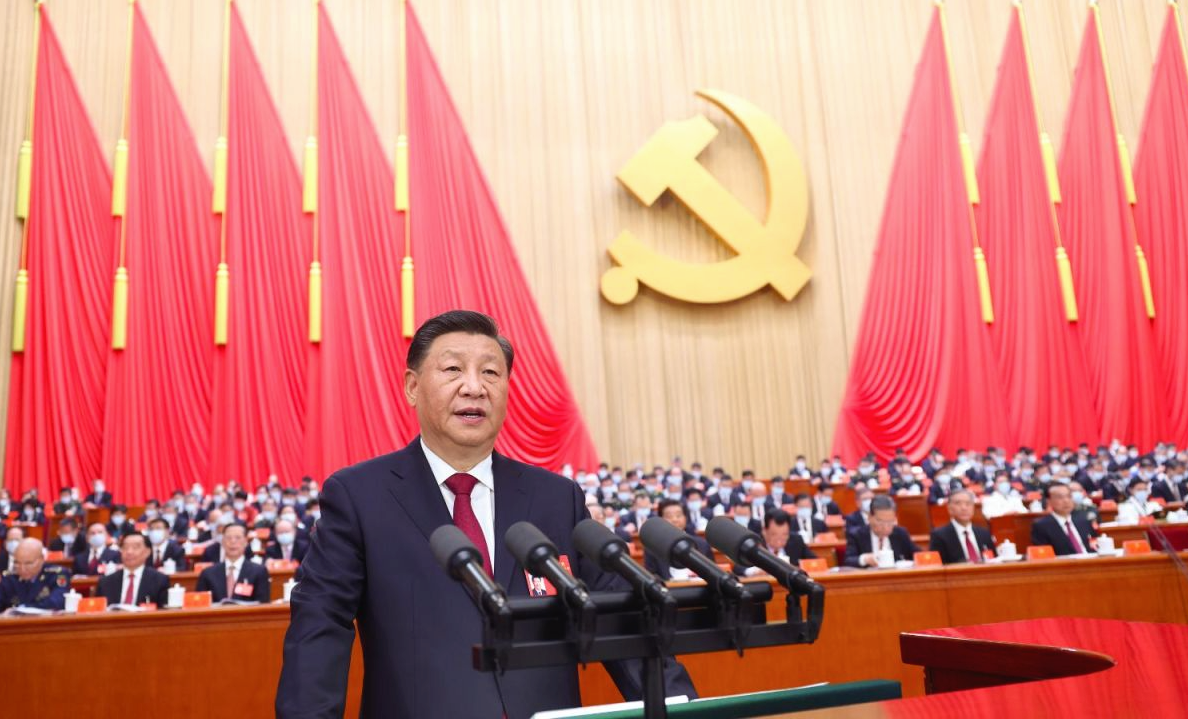The Chinese system is routinely classified as communist. Chinese leaders themselves belong to what they call the Communist Party, and they refer to the system as “communism with Chinese characteristics.” The use of this term largely explains the prevailing antagonism against China in many Western societies and could be the ultimate cause of dangerous conflicts in the future. But does China’s socio-economic and political system fit the definition of communism?
Communism is a system where the state (representing society or the community) owns the means of production and decides what, how, for whom, and how much to produce. Therefore, there is no private property, and individuals have no freedom or initiative to decide what to consume or answer questions related to production. In that model, access to consumer goods is determined by each individual’s needs, meaning there are no differences in living standards or social classes based on consumption.
China aspired to a system close to that characterization starting in 1949, during the era of Mao Zedong. Under his leadership, agricultural activities were collectivized, the state took control of the country’s land, and virtually all industrial sectors fell into its hands.
However, as a result of deep reforms agreed upon in late 1978 under the leadership of Deng Xiaoping, China began creating significant space for private enterprise, individual initiative, and foreign investment. Ideological purity was replaced by a pursuit of economic and social results, within a pragmatic framework summarized by Deng Xiaoping’s famous saying: “It doesn’t matter whether the cat is black or white, as long as it catches mice.”
Pro-market and pro-private enterprise reforms and the consolidation of a mixed economy have coincided with extraordinary achievements. Between 1980 and 2010, China’s GDP grew at an annual rate of nearly 10%, and 800 million people were lifted out of poverty. These immense economic and social successes are unparalleled in history. Today, the world worries (or celebrates!) China’s “slow” growth, which hovers around 5% annually. But it’s worth noting that the corresponding rates for the United States, Germany, and Japan are 2.7%, 0.2%, and 0.9%, respectively, and the average for the European Union is 0.7%, while the G7 average is 1.5%.
China is second only to the United States in GDP size and is the undisputed leader in producing many high-tech industrial products. Its level of efficiency and competitiveness is such that Western leaders, who are ideologically persuaded of the benefits of free trade and the theory of comparative advantage, are resorting to protectionist measures to prevent their industries from being overwhelmed by Chinese exports.
It’s argued that these measures are necessary because the Chinese government subsidizes its companies, supposedly creating unfair competition. The magnitude of these subsidies is unknown, but they do exist—just as subsidies and tax exemptions for specific industries have existed in the United States, Europe, and Japan, chosen for their social, geographical, military, or technological impacts.
Despite this openness to market forces and private enterprise, the Chinese state remains the owner of significant sectors like banking, energy, transportation, and others. Overall, state participation in production is much more significant than in the United States, although similar to what characterized Western Europe before 1980.
In short, the Chinese system is as far from neoliberalism as it is from communism. But calling it communist helps justify economic measures in the U.S. and Europe to protect their business sectors and increase military spending (and the profits of the military-industrial complex). Many Western business sectors genuinely believe that China is communist, fearing that if China continues to strengthen, its system may eventually be adopted and their wealth expropriated. That’s why they join the anti-China hostility.
The truth is that China is not communist, as the private sector and individual initiative have a strong presence, and there are vast spaces for market forces, which explains the post-1978 successes. But if it were communist, that would imply that communism is an excellent socio-economic system. Put another way, either China isn’t communist, or communism is an excellent system for economic growth and poverty reduction.
Politically, China is a “One Party State,” with the resulting limitations on many freedoms. But that doesn’t make it communist. If it did, then Pinochet’s Chile would have been communist. And let’s not even mention the Gulf monarchies, like Saudi Arabia. They should be called “One Family States” but never communist.
The confusion stems from both internal propaganda by Chinese leaders, who continue to call their system communist, and from Western propaganda against “communist” China, which goes beyond semantics. For Chinese leaders, it’s hard to accept that their system isn’t communist because, since the party’s founding in 1923, their strategy has been to convince the Chinese people that Marxist collectivism held the answers to their development aspirations. With that propaganda, the party won the civil war against the Kuomintang and has governed since 1949. Accepting that economic and social successes came when they abandoned communism doesn’t fit that narrative at all. That’s why they continue to call themselves communists (post-truth in China?).
In the West, the logical sequence of propaganda starts with a truth and leads to a lie: “Communism is bad, China is communist, therefore, China is bad” (post-truth in the West?). This lie has been ingrained in the hearts and minds of millions around the world, creating environments in democracies to justify aggressive economic and military stances against China, and eventually, new wars (and new benefits for politicians and businesspeople who profit from them).
Communism was a resounding failure, both from an economic-social perspective and in terms of basic freedoms and human rights. But the Chinese system isn’t communist. If someone is going to hate or fear that country, they should find their reasons, but it can’t be because it’s communist, because it’s not.













